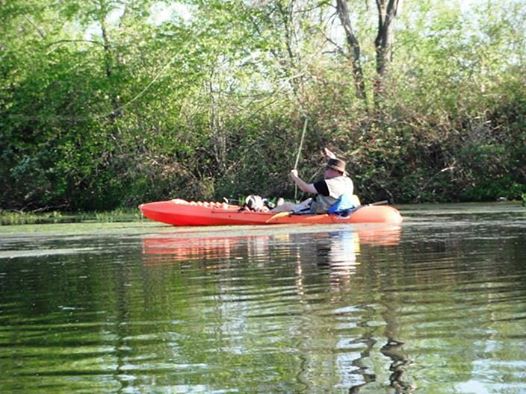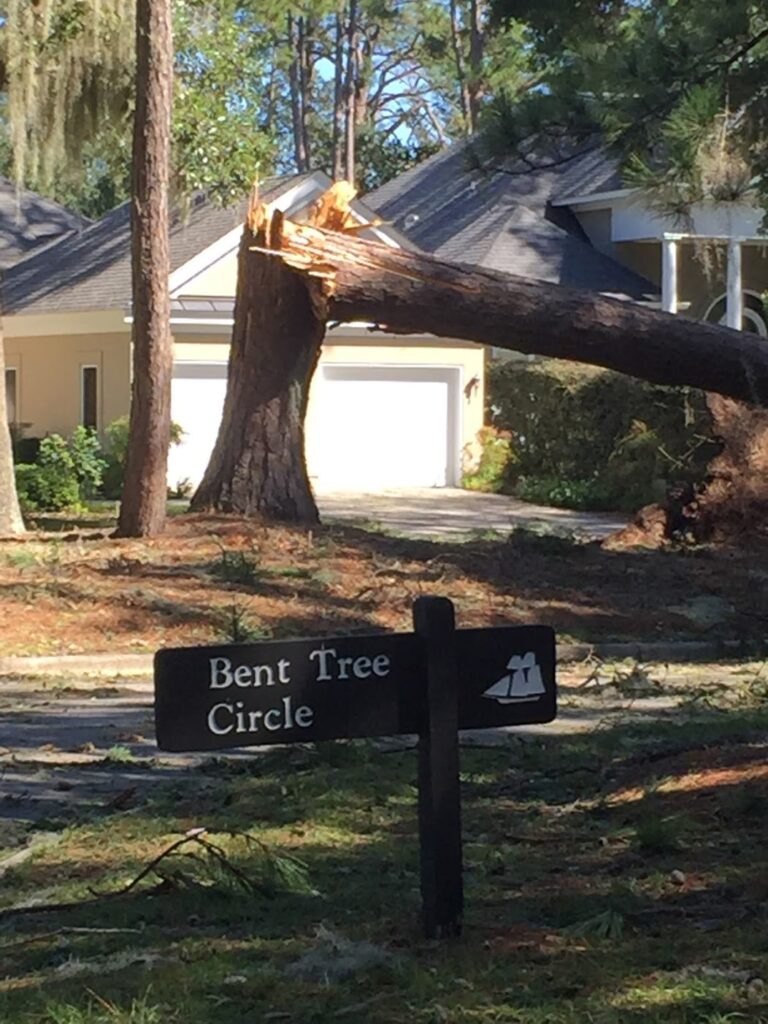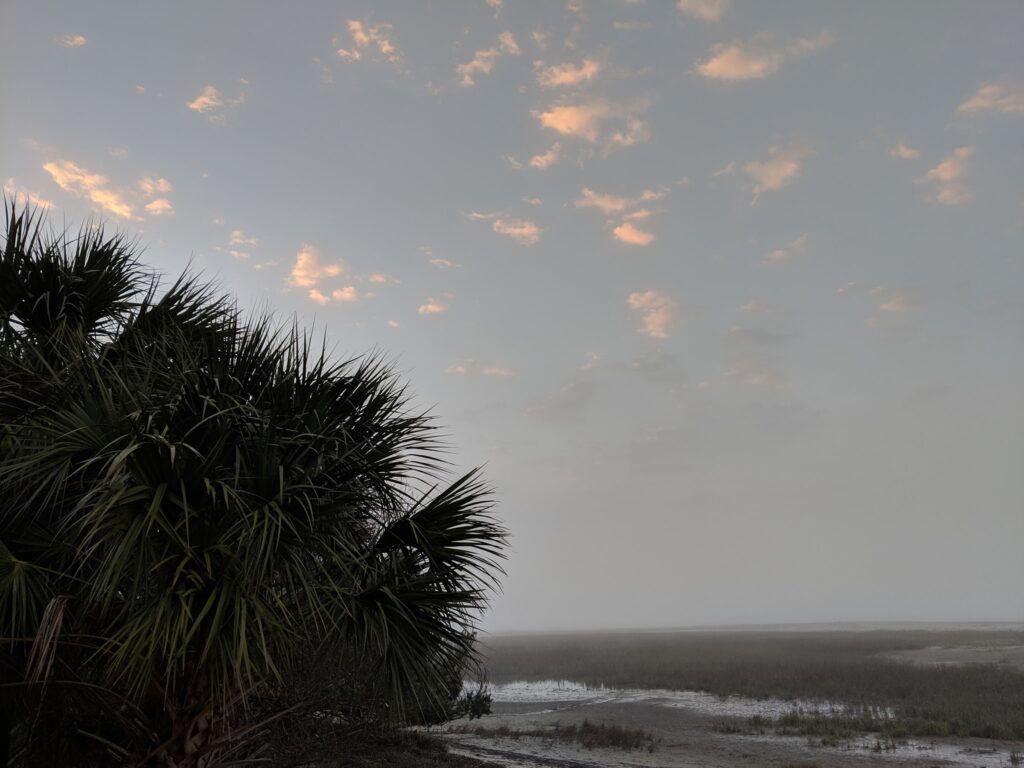Jeff Garrison
Bluemont and Mayberry Churches
May 15, 2021
Hebrews 12:1-13
Sermon taped at Bluemont Church on Friday, May 13, 2021
Thoughts at the beginning of worship:
We’re on a journey. It’s a familiar Christian metaphor that we’ve seen through our time in the Book of Hebrews. As Christians, we are not settlers on this earth, we’re pilgrims. We’re passing through, longing for the place God prepares. That doesn’t mean this world is all bad; after all God created the world good.[1] But it does mean that we don’t need to be too attached to the present. We must trust and have faith in what God is doing.
Today, the preacher of this sermon known as the Book of Hebrews, steps up the pace. Instead of a journey like Abraham trotting through the desert, or the Israelites filing out of Egypt, we’re now called to run. The end is near and there’s Jesus and others cheering us on. It is not a time to stumble, not when we’re so close.
In my Monday’s Bible study on this passage, Jerry Potter, who ran track in high school, said his coach used to always say, “Don’t stop until you’re beyond the tape.” Was he just talking about running, or is this a metaphor for life?
Read Hebrews 12:1-13 in The Message translation.
After reading Scripture
The night had been filled with storms. It felt good to have rain at night, when sleeping. It certainly beat walking in the rain. Nonetheless, I kept waking and checking for leaks in my tarp and watching the incredible lightning. This made me sluggish crawling out of my sleeping bag come morning.
Fog hung over Cloud Pond Lake and in a distance, I could see a moose in knee-deep water, eating. Although the rain had stopped, water continued to drip off the leaves and the ground was soaked. I pulled on my boots and began the morning ritual.
Morning on the Appalachian Trail
By this point in my hike on the Appalachian Trail, everything had been reduced to a ritual. I put on a pot of water to boil, while I stuff my sleeping bag and rolled by pad. When the water boiled, I fixed a big bowl of oatmeal mixed with powdered milk, nuts, dried fruit, and brown sugar. With the remaining water, I set a tea bag to steep. I then found myself a rock and sat. While eating, I made a few notes in my journal and read a Psalm or two. I was in no hurry to start hiking with everything wet, Yet the trail soon called.
Seeing the distance goal
It was my second day out of Monson, Maine. I headed deep into the 120-mile wilderness, a section of the Appalachian Trail in which there are no public roads. The next such road is at the base of Mount Katahdin where the trail ends. When I shouldered my pack, the cool air encouraged me to go faster. I climbed Chairback Mountain, making it across the various peaks. And on the fourth peak, I saw Katahdin, off in the distance. My summer of hiking the trail was coming to an end. I could see the goal. I celebrated with a large tootsie roll.
Over the next day, Katahdin kept appearing. There it was on the peaks of Gulf Hogas Mountain and White Cap Mountain. I wanted to slow down, but at times felt an invisible hand push me forward. Sometimes the feeling was so real, as if someone was pushing against my back. I would turn around, but no one was there.
I mused in my journal if it was God providing the strength I’d prayed for, to finish the trail. But as I was getting closer, I now wanted to go on forever. I wanted to savor every moment.

Katahdin from Daisy Lake (taken on August 29, 1987)
The mornings were cold, sometimes below freezing, but by the afternoon, things would warm up and we’d often take a swim in one of the numerous lakes. I pulled a 23-mile day but was sad when I realized it would be the last of my 20-mile days. The days, along with the miles, were getting shorter. Several of us planned to climb Katahdin on August 30. There was no need to rush.
Lakes block our way
Then the lakes appear. There were no more mountains, just hills, until the end which was on the summit of Katahdin. It seemed we just had lakes to walk around. Katahdin could regularly be seen from the southern shores. The lakes blocked our way to the mountain. We’d travel east or west, around the lake, to its mouth or headwaters, where we’d cross a small stream on a log to get to the other side. A few miles later, as we approached another lake, there would be Katahdin, again. It didn’t look much closer. With the trail running mostly running parallel, back and forth, we were forced to endure a slow approach.
Hebrews and the Appalachian Trail
As I think back over our journey through the book of Hebrews, I feel a little like I was on the Appalachian Trail back in 1987. Throughout Hebrews, we’ve been invited to journey with others. Whether Abraham or Moses, or the Israelites, movement is a part of life. We’re called to something better. Something pulls us forward. Jesus Christ is like a magnet, drawing us onward.
Jesus is superior to everything
The preacher of this sermon known as Hebrews has already pointed out Jesus as superior to everything. He tops angels and Moses and the Chief Priest. His sacrifice supersedes all other sacrifices and renders them obsolete. For Hebrews, everything comes back to Jesus. He is our goal, the one we are to follow, the one longed for by the people of faith in Israel, as we saw in the 11th Chapter.
No longer just a journey, now a race
While the first 11 chapters of Hebrews is about a journey, the author shifts metaphors in the 12th. It’s no longer a leisurely walk, but a race, a marathon.[2] We’re taken into the sports arena where the fans are those who have completed the race. They form a cloud of witnesses, cheering us on, as we make our way toward the throne of God, toward our Savior, the one who perfects our faith.
As I have said many times as we work our way through this book, the concern raised in Hebrews is that some have or are considering abandoning the faith.[3] The message in this passage is don’t give up. We’re so close. The discipline and the training we’ve endured have brought us to this point. Keep going…
Those watching us includes Jesus
We’re reminded that Jesus, too, has run this race. He lived among us and suffered with and because of us. While he may have stumbled along the way to the cross,[4] he fulfilled his mission and is now at the right hand of God. We can almost envision the ancient coliseum in which the runners would complete their race. At the top, you had the king and his family. Here, we have God the Father and Jesus the son, watching in excitement as we run our race.
Doesn’t that get to you, we’re being watched, by God and by those who have gone before us. Not just the ancient ones spoken of in chapter 11, but others from our own lives. Think of those who shared the faith with us and who encouraged us in this life. Maybe it’s our parents and grandparents. Maybe it’s a teacher or a youth leader. They want us to hang in there. They want us to remain faithful and finish the race.
Discipline
In the middle part of our reading, starting with verse 4, it appears as if the author moves off the race image, but not really. He brings up our trials and troubles and reminds us that we’re not the first or the only one to face such trials. Some had even worse. Furthermore, there are times we may wonder about the discipline we’ve had to endure.
Does God not like us, we question? But we’re reminded that if a parent doesn’t discipline a child, there is something wrong. The same is true with God.
Did you parents ever say right before a punishment, “This is going to hurt me more than you?” Discipline isn’t fun for either party, but Hebrews reminds us that it’s part of our training. If a runner lacks discipline, he probably lacks metals, too. We must learn right and wrong, what is good and beautiful along with what is bad and ugly. Furthermore, we are to learn what God has done for us.
Telling the story as preparation
In the Old Testament, after the Exodus, Israel is repeatedly told to teach the story to their children. It was the purpose behind the Passover celebration. The same is true for our remembering of Christmas, Good Friday, and Easter. It’s all part of our training and preparation for the race of life.
The race to the top
The morning of August 30th came quickly. Having camped the previous night at the base of Mount Katahdin, I was up before dawn. I laced my boots over my sore feet. Even though calloused after months of hiking, those dogs still hurt.[5] I went through my routine one more time, firing up my stove in the as dawn broke.
After breakfast, I started discarding that which I did not need in my pack. I had spent my last night on the trail; this night I would be in a hotel. Like a runner discarding anything that would him or her back, I shed all the weight I could. With a light pack, I hit the trail. Nothing could hold me back now.
That’s the message of Hebrews. Keep going. Shed anything that holds you back. Keep moving closer and closer to Jesus. God is not some angry judge in the sky just waiting for the opportunity to smack us down. God, along with all the others, are cheering us on. Keep going.
As Jerry Potter’s track coach used to tell him, “Don’t stop running until you are through the tape.” And, I will add, “keep your eyes on Jesus.” Amen.
[1] The world itself longs for renewal, Paul tells us in Romans 8:18-25.
[2] Thomas Long, Hebrews (Louisville, KY: WJKP. ),
[3] We first saw this concern in Hebrews 2:1-4.
[4] The idea that Jesus stumbled comes from Simon of Cyrene being pressed to take Jesus’ cross. See Matthew 27:32, Mark 15:21, Luke 23:26.
[5] Dogs were trail slang for feet.







